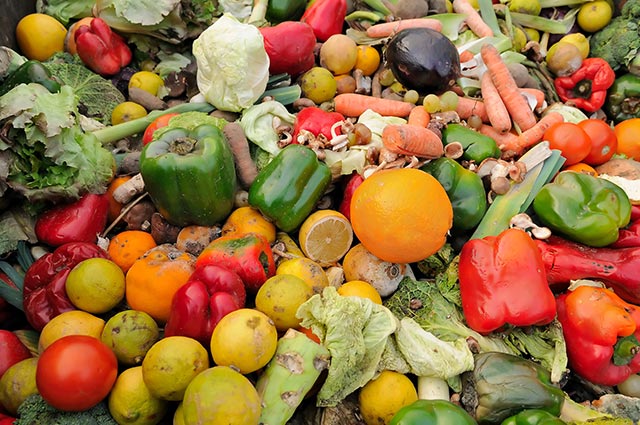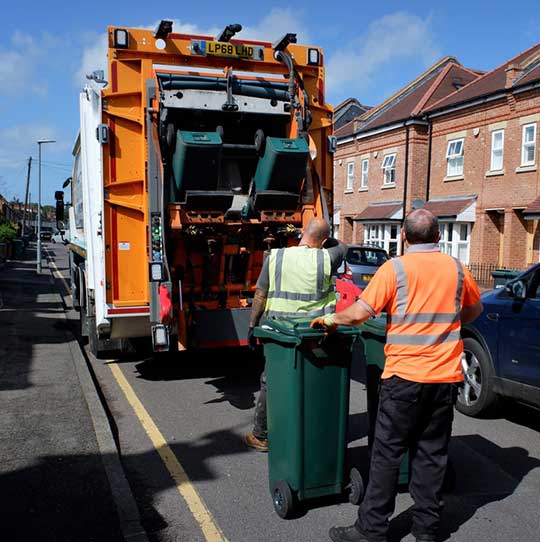Seventeen percent of all dairy made is wasted a year in the US, about 27 billion dollars of loss. In fact, a third of all food produced for humans globally is not eaten by anyone (Santagata et al., 2021 & Buzby et al., 2014). These are shocking facts, right? But we most likely will not act on these facts and will probably even forget them. This is because we humans generally do not like changing our habits. It takes a lot of effort to do so, even more if the consequences are not seen right away, which is especially true for the effects of waste.
 Image: Stock Cube/DepositPhotos
Image: Stock Cube/DepositPhotosWe hardly ever see the waste we create by our consumption, apart from maybe the 30 seconds we spend putting our bins out when we see just how much plastic is in our recycling. But this rubbish is magically taken away by 6 am. The fact that we are used to having no waste around us, and our rubbish disappears from view at a time when hardly anyone is awake, is removing our sense of responsibility for it (Coverly et al., 2008). We do not like waste around us and most of us have an out-of-sight-out-of-mind mentality.
 Image: DepositPhotos
Image: DepositPhotosThe social norms surrounding seeing rubbish, and our perception of it being un-acceptable, begins from a very young age when many of us are taught that everyone takes home or picks up their litter, or there’s possible consequences both socially and financially, such as dirty looks or even massive fines. This is a good thing as we should be held accountable if we drop our litter. But the issue lies in how much waste we create in general. For example, the food in our fridge which has gone off, or the packaging of our new laptop as well as our old laptop that we throw away. But why should we reduce how much we buy or throw away if no-one else is? This mindset is shared throughout the majority of our society and creates a social responsibility problem (Minelgait? & Liobikien?, 2019).
But it is not that we don’t feel bad about how much we consume and therefore waste, in fact a lot of us do at least in part feel guilty about our consumption. The greater the rate of consumption of a country the more the country reduces, re-uses, and re-cycles (Minelgait? & Liobikien?, 2019). But this only tackles the symptoms produced by our consumption, not the root cause. In the US they’ve gone so far as to ban junkyards from the view of federal and State roads making waste almost invisible (Nees et al., 2003), so we never see the un-pleasant aftermath.
We need to lower our consumption rate and encourage social responsibility for our waste. We need as consumers to think about what we are buying and how it would be disposed, we can avoid food waste by making meal plans and actually eating leftovers (Principato et al., 2021), or prevent usable items going to landfill by buying second hand. In fact, the earlier mentioned dairy wasting crisis creates methane when decomposing and is related to damage to the ozone layer and therefore climate change, even when poured down the drain (Buzby et al., 2014). However, we can lower our waste creation and maybe by crying over spilt milk and trying to make sure we don’t waste as much again, will help our planet.
Image credits:
- foodwaste-dp: Stock Cube/DepositPhotos
- bin-men: DepositPhotos

















